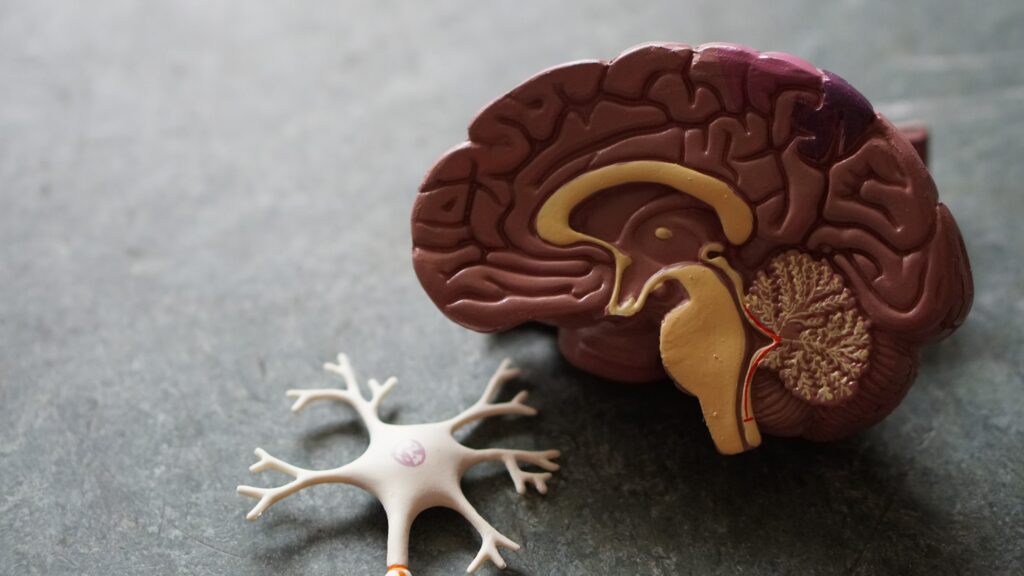Heroin Effects
Short- & Long-Term Effects of Heroin
Heroin is a highly addictive and dangerous drug with devastating consequences for physical and mental health.
While initially offering a deceptive sense of euphoria, heroin rapidly leads to dependence and severe health issues. We’ll examine the different forms of heroin, its common routes of administration, and the long-term consequences it can inflict.
This blog delves into the dangerous effects of heroin use, exploring its impact on the brain, body, and emotional well-being.

By: Renaissance Recovery
Clinically Reviewed by: Diana Vo, LMFT
Last Updated:
03/22/2024
The Long-Term Effects of Heroin Use
Like any other illicit drug, the chronic use of heroin is associated with many adverse long-term effects of heroin abuse, some of which can be fatal.
Heroin addiction is a primary long-term effect of sustained heroin use. The pleasurable sensations induced by the drug compel users to escalate their dosage and frequency of use, leading to the development of physical dependence and psychological addiction.
In 2021, approximately 1.1 million U.S. adults reported past-year heroin use, with over 1 million individuals developing heroin addiction within the same year, according to SAMHSA (Substance Abuse and Mental Health Services Administration).
Chronic substance use alters your physical structure and the brain’s physiology. Such changes result in long-term imbalances of the body’s neural and hormonal patterns, which are irreversible effects.
Other common long-term side effects of heroin abuse include cold sweats, respiratory complications, disrupted menstrual cycles in women, reduced sexual urge in men, memory loss, and insomnia.

Long-Term Physical Effects of Heroin
Long-term heroin use can lead to a number of dangerous physical health symptoms. Some of the most common physical health effects of heroin include:
- Heart infections
- Collapsed veins
- Liver and kidney disease
- Lung diseases
- Higher chances of infections diseases like HIV and Hepatitis C
Along with these, one of the most common long-term physical effects due to heroin is the development of track marks and puffy hand syndrome. Track marks are marking near the site of injection, they appear like puncture marks that haven’t healed and can lead to collapsed veins.
Most estimates suggest up to 50% of your risk profile for any addiction is genetic. Beyond this, a variety of environmental and social factors also play a role in whether or not you become addicted to a substance like alcohol.
As addiction starts to build, you’ll find you require more alcohol to achieve the same effects as tolerance grows. By this point, you’ll also be liable to experience intense withdrawal symptoms if you stop drinking alcohol.

Long-Term Effects of Heroin Use on the Brain
Heroin is a highly addictive drug because of its euphoric effects. Heroin affects the brain by binding to the opioid receptors, causing a release of a large amount of dopamine, which is a chemical that creates happiness.
Repeated exposure to heroin use changes the structure and physiology of the brain. It can create major hormonal and emotional changes that are not easily reversed. Studies have even shown that there is a deterioration of white brain matter in long-term heroin users which affects decision-making abilities and ability to regulate behavior.
When a physical dependence begins, the brain adjusts to the presence of heroin in the body, and dangerous withdrawal symptoms will occur when heroin use is reduced.
It’s critical to seek medical intervention if you or your loved ones exhibit the warning symptoms of addiction, including:
- Significant weight loss
- Extreme fatigue
- Guilt, hopelessness, and depression
- Disrupted sleeping patterns
- Withdrawal from family and friends
- Strained relationships
- Health conditions like pneumonia and tuberculosis
Along with these problems, heroin and opioid withdrawal syndrome can occur after a physical and psychological dependence on heroin develops. Heroin withdrawal can lead to a number of dangerous and life-threatening complications.
If you notice these signs in yourself or your loved one, get in contact with a treatment team today.

Fight Back Against Heroin Addiction
Get evidence-based treatment to overcome heroin addiction at Renaissance Recovery. Call our team now to learn more about the process.
Short-Term Effects of Heroin
While the long-term effects of heroin can be detrimental, it is also important to learn about the short-term effects of heroin use that can occur. When heroin first enters the brain it quickly binds to opioid receptors. When this happens, people feel a “rush” or “high” as feel-good chemicals flood the brain.
Unfortunately, there are a number of problematic short-term effects as well. Some common heroin short-term effects include:
- Nausea
- Vomiting
- Itching
- Dry mouth
- Heavy feeling in extremities
Along with these, heroin can also cause clouded mental functioning and repressed breathing. The slowed breathing can lead to more dangerous problems like coma and permanent brain damage.
All of these are issues commonly occurring short-term heroin effects on the body and while they are dangerous, they don’t even touch on the most dangerous — overdose.
Heroin Overdose
In 2020, there were more than 13,000 heroin-related overdose deaths. Heroin use and heroin overdoses have been steadily rising since the beginning of the Opioid Crisis as many people turn from prescription opioids to a cheaper, illicit option.
Heroin overdose is the most dangerous short-term consequence of substance abuse, and it’s important to understand what the risks are for engaging in heroin use. The best overdose prevention is always abstinence, however if you or a loved one are struggling with heroin addiction and are concerned about heroin overdose, getting into a treatment facility or talking to an addiction counselor can be a life-saving decision.
Side Effects of Heroin
The side effects of heroin use range from moderate to extreme, and are in general difficult and uncomfortable to experience in addition to the extreme and rapid-onset cravings.
Heroin abuse is associated with a range of heroin symptoms that can have detrimental effects on physical health, mental well-being, and overall quality of life. An awareness of heroin side effects will help inform individuals about the many dangers of heroin abuse, including addiction and fatal overdose.
Harmful effects of heroin include:


Long-Term Effects of Heroin-Addicted Babies
If a woman is pregnant and using heroin, it can lead to birth defects and complications with the birth of the child as a result of the effects of heroin in the body.
Some of the health effects and can result in neonatal abstinence syndrome (NAS). Some of the health problems that can occur include:
- Excessive crying
- Irritability
- Seizures
- Tremors
- Vomiting
In extreme cases, this problem can lead to the death of the child. For those who are struggling with heroin addiction while pregnant, it is vital to get addiction treatment.
Get Treatment for the Effects of Heroin Abuse at Renaissance
Understanding the effects and risks of cocaine abuse is crucial for seeking help. At Renaissance Recovery, we offer top-notch treatment for cocaine addiction, led by expert clinical staff. If you or someone you know is struggling to break free from cocaine use, our center provides effective, long-term recovery solutions.
Our treatment center collaborates with outstanding detox programs to kickstart your recovery journey. Following detox, our premier outpatient program offers personalized care. We also work with excellent sober living homes, ensuring you have a supportive community of peers committed to maintaining a sober lifestyle.
With aftercare support and an active alumni network, you’ll have exceptional assistance at every stage of your recovery journey. Our treatment program is tailored to your needs, combining various strategies, including medication-assisted treatment (using medications like methadone or buprenorphine) to manage withdrawal symptoms, as well as dual diagnosis treatment for those with co-occurring mental health issues.
Don’t let heroin abuse and dependence control your life. Contact Renaissance Recovery today to explore our heroin abuse and rehab treatment programs.

